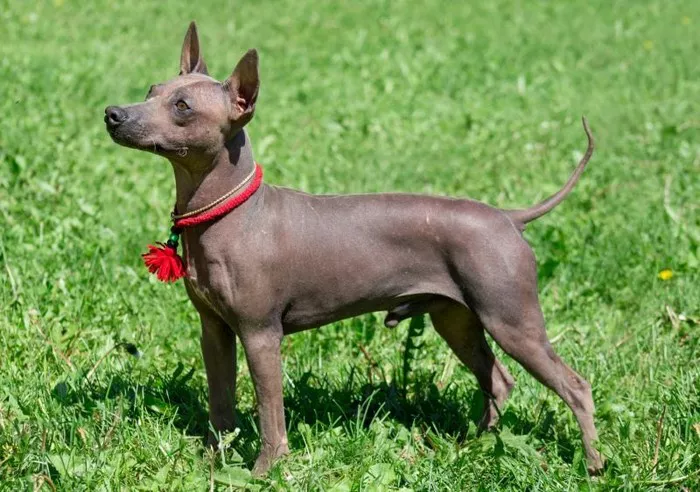Hairless dogs are a unique and fascinating breed of canines that have gained popularity in recent years. These dogs are known for their lack of fur, which makes them stand out from other breeds. While hairless dogs are often thought of as cute and trendy, many people wonder if they are healthy. In this article, we will explore the health and wellness of hairless dogs and provide insight into the potential health concerns that come with owning one.
The History of Hairless Dogs:
Hairless dogs have been around for centuries, with evidence of their existence dating back to the Aztecs in Mexico. The Aztecs bred hairless dogs for their meat, which was considered a delicacy. The breed was later introduced to Europe by Spanish explorers and eventually made its way to the United States in the 1800s.
Today, hairless dogs are recognized as a unique breed and are often kept as pets. The most popular breeds of hairless dogs include the Chinese Crested, the Peruvian Inca Orchid, and the Xoloitzcuintli (or Mexican Hairless).
Health Concerns of Hairless Dogs:
While hairless dogs may be cute and trendy, they do come with some potential health concerns. One of the most significant concerns is their lack of fur, which can make them more susceptible to sunburn and skin damage. Owners of hairless dogs must take extra precautions to protect their pets from the sun, including using sunscreen and limiting their time outside during peak sun hours.
Another health concern for hairless dogs is their susceptibility to skin infections. Without fur to protect their skin, hairless dogs are more prone to developing skin irritations and infections. Owners must be diligent in keeping their hairless dogs’ skin clean and free from irritants to prevent infections from occurring.
In addition to skin concerns, hairless dogs may also be prone to dental issues. The lack of fur around their mouths can lead to a buildup of bacteria, which can cause dental problems such as gum disease and tooth decay. Owners of hairless dogs must take extra care to keep their pet’s teeth clean and healthy.
Despite these potential health concerns, hairless dogs are generally considered to be healthy and long-lived. With proper care and attention, hairless dogs can live happy and healthy lives.
Grooming and Care for Hairless Dogs:
While hairless dogs may not require regular grooming in the traditional sense, they do require special care to keep their skin healthy. Owners of hairless dogs must be diligent in keeping their pet’s skin clean and free from irritants. This may involve regular bathing, moisturizing, and applying sunscreen when necessary.
In addition to skin care, hairless dogs also require regular dental care. Owners should brush their pet’s teeth regularly and provide them with dental chews or toys to help keep their teeth clean.
Finally, hairless dogs also require regular exercise and a healthy diet to maintain their overall health and wellness. Owners should provide their hairless dogs with plenty of opportunities to exercise and play, as well as a balanced diet that meets their nutritional needs.
Potential Health Issues in Hairless Dogs:
In addition to the health concerns mentioned above, hairless dogs may also be prone to other health issues. For example, they may be more susceptible to eye problems such as cataracts and glaucoma. Owners should be aware of the signs of these conditions and seek veterinary care if they suspect their dog may be affected.
Hairless dogs may also be prone to allergies, which can cause skin irritation and other health problems. Owners should be aware of the signs of allergies and work with their veterinarian to identify and manage potential allergens.
Finally, hairless dogs may be more prone to heatstroke than other breeds. Owners should take extra precautions to keep their hairless dogs cool and comfortable during hot weather, such as providing plenty of shade and fresh water.
Benefits of Owning a Hairless Dog:
Despite the potential health concerns, there are also many benefits to owning a hairless dog. For example, hairless dogs are often hypoallergenic, which can make them a good choice for people with allergies. They also require less grooming than other breeds, which can be a plus for busy owners.
Hairless dogs are also known for their friendly and affectionate personalities. They make great companions and are often good with children and other pets. In addition, hairless dogs are often very intelligent and can be trained to perform a variety of tasks and tricks.
Conclusion:
In conclusion, hairless dogs are a unique and fascinating breed of canines that require special care and attention to maintain their health and wellness. While they may be more susceptible to certain health concerns, such as skin infections and dental issues, with proper care and attention, hairless dogs can live long and healthy lives. If you are considering adding a hairless dog to your family, be sure to do your research and understand the potential health concerns that come with owning one. With the right care and attention, a hairless dog can make a loving and loyal companion for years to come.


